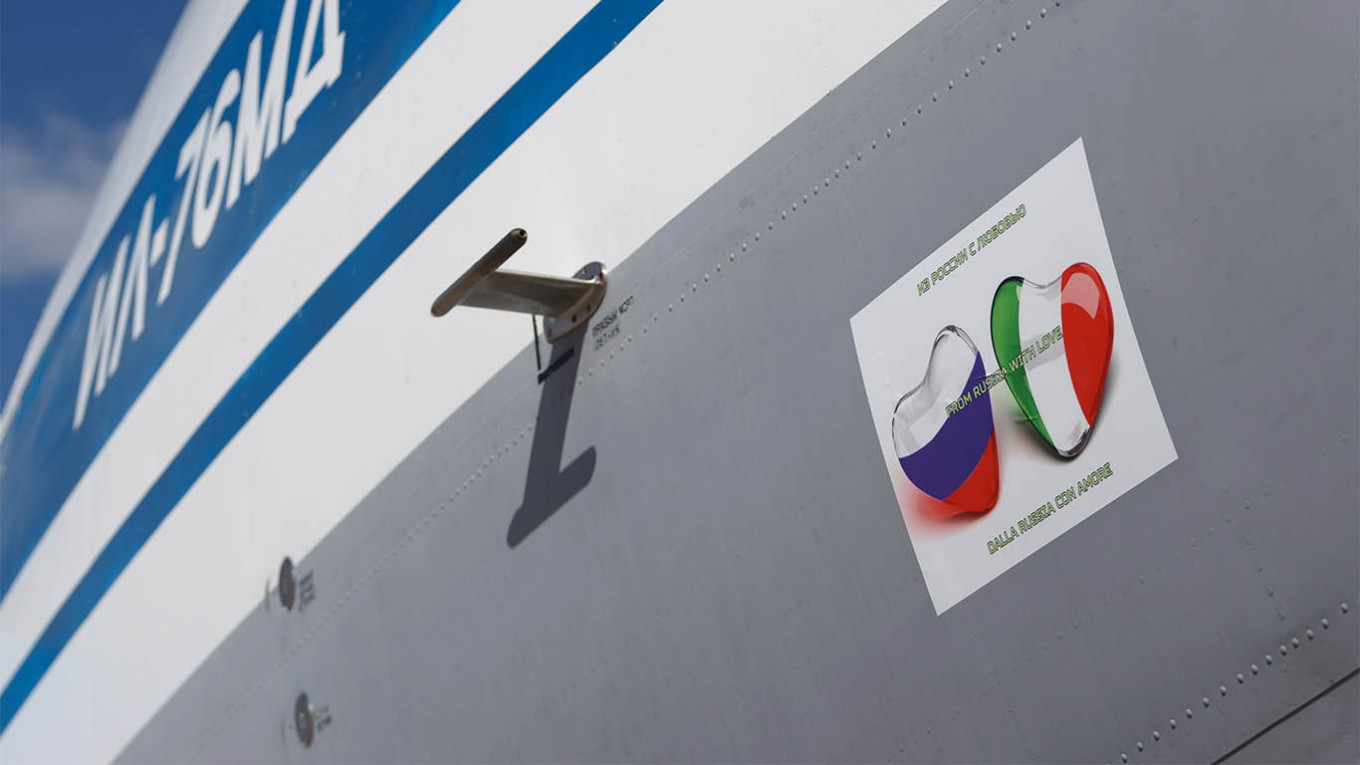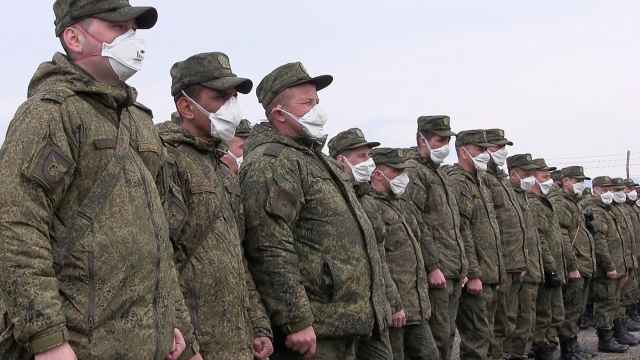The truth is in the eye of the beholder.
Italians who have received extensive coverage in Russian state media for playing the Russian anthem or waving the Russian flag in gratitude to Moscow’s coronavirus aid have either family or financial connections to Russia, BBC Russia reported Tuesday.
Critics have argued that the package of decontamination units and military medical staff sent to virus-hit Italy and dubbed “From Russia With Love” was an attempt at a publicity coup for President Vladimir Putin. Italy has been one of the world’s hardest-hit countries by Covid-19, with more than 101,000 infections and more than 11,500 deaths.
A widely covered video showing the Russian national anthem blaring from an Italian balcony was in fact shared by the mother of a pro-Kremlin media outlet staffer who lives in Italy with an Italian husband, BBC Russia reported.
Another popular video of an Italian man replacing the European Union flag with the Russian tricolor in fact depicted a business owner who has Russian partners, the outlet reported. The authors of two other widely covered videos and images of the Russian flag and anthem in Italy turned out to have either lived in Russia or traveled there numerous times, according to BBC Russia.
“All these fans of Russia aren’t just ordinary Italians, they have close business and financial ties with Moscow,” said Ilya Shepelin, host of the “Fake News” show on the independent Dozhd news channel.
“If they didn’t have such ties, maybe these Italians’ enthusiasm wouldn’t be so emotional,” Shepelin, who is also a columnist for The Moscow Times, added.
“We’re not dealing with a pure fake, but with manipulation. A hybrid lie or hybrid truth, depending on how you look at it,” he told BBC Russia.
A Message from The Moscow Times:
Dear readers,
We are facing unprecedented challenges. Russia's Prosecutor General's Office has designated The Moscow Times as an "undesirable" organization, criminalizing our work and putting our staff at risk of prosecution. This follows our earlier unjust labeling as a "foreign agent."
These actions are direct attempts to silence independent journalism in Russia. The authorities claim our work "discredits the decisions of the Russian leadership." We see things differently: we strive to provide accurate, unbiased reporting on Russia.
We, the journalists of The Moscow Times, refuse to be silenced. But to continue our work, we need your help.
Your support, no matter how small, makes a world of difference. If you can, please support us monthly starting from just $2. It's quick to set up, and every contribution makes a significant impact.
By supporting The Moscow Times, you're defending open, independent journalism in the face of repression. Thank you for standing with us.
Remind me later.






